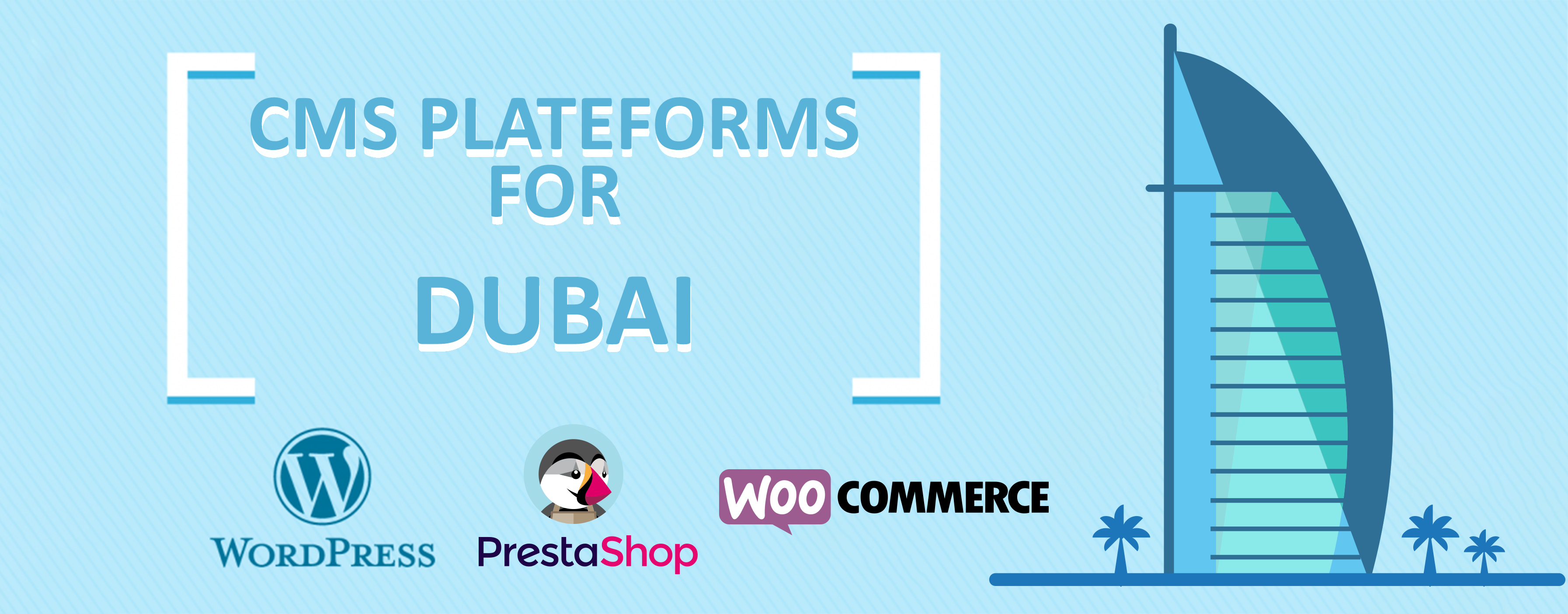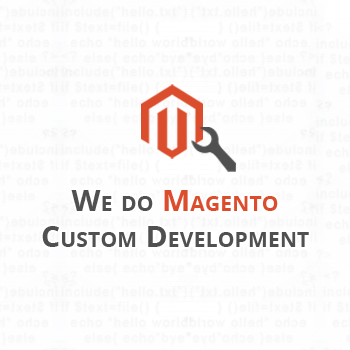Dubai has grown by leaps and bounds in a decade or two. The continuous and speedy advancement in businesses and corporate sector has made it a fastest growing economy around the globe. Thus, more and more people are attracted to take benefit of the economy by having a business, a startup, an online store, or providing professional services.
And, every business idea is followed by an attractive and fascinating website. It is considered as important as holding an office or physical address for a business. It can be built from scratch or founded on a CMS platform.
What is a CMS platform?
Before moving on to describe various CMS platforms, it is significant to know the purpose and benefit of CMS. It is a complete management system that facilitates the admin, either a business owner or its manager, to easily upload, edit, and download data to or from the website.
Usually, these tasks are allotted to developers, but seeking their help every time you need to post a blog or display a new product is difficult and expensive. A CMS platform simplifies all such tasks for a layman. In short, it empowers you to modify website content whenever you need without acquiring expertise in web development languages. In this post, I am sharing some of the business-oriented and easy to use CMS platforms that are suitable for Dubai based businesses.
Best CMS Platforms for Small businesses
Small to medium size entities has limited website usability. They either have to target a locality or a specific community. For example, a personal blog of a writer or a two-page website of an accountant, doctor, or cloth merchant. To save time and money in developing a dedicated website, they can make a website with WordPress, Wix, blogger, and Joomla. These are the open-source CMS platforms that require a quick installation over a free or self-hosted server, along with a custom domain name. These applications are discussed below in detail.
1. WordPress
According to globalmediainsight, more than half of the websites in UAE are powered by WordPress. The popularity of WordPress in Dubai and the entire region is beholden to the global fame of this simple and easy to use CMS platform.
WordPress is liked the most for its simple interface, supportive community of developers, and an extensive variety of themes, tools, and plugins. A small business can start with as low as a one-page website and turn it into a complete eCommerce website with the help of tools and plugins.
Pros:
- A free and open-source application to start with
- Simple and easy user interface
- Search engine friendly CMS
Cons:
- Limitations in customization and tools addition
- Open source code makes it vulnerable to hacking attacks
- Updating core application may harm other plugins installed
2. Wix
Wix followed WordPress by bringing a website building tool but with more fascinating options. Wix is somewhat different than other CMS platforms as it allows creating a complete website with a simple drag and drop action. Numerous widgets and functionalities are provided in the application that requires you to select, drag, and drop them one by one to desired positions of web pages.
Making a website with Wix has become a child's play. Just the way a beginner computer user starts designing in paint application. The matchless simplicity of Wix is adopted equally in Dubai as it is around the globe that's why more than 8% of the websites in UAE are now based on Wix, as reported by globalmediainsight.
Pros:
- Various premium plans help improve website as your business expands
- A fully functional drag-and-drop website builder
- Multiple design templates to select for your website
Cons:
- Wix displays ads on your website even in the starter package
- Limited applications and extensions to extend functionality of your website
- Wix lacks website optimization for advanced search engine visibility
3. Blogger
Blogger and WordPress were the two names I knew but I had to select a platform for blogging. These were used interchangeably. These both offer the businessmen to have a website free of cost. It sets you free to own a domain, install an application, and host it on a server. It's a complete package. Additionally, if a business needs a personalized web presence, they can register a custom domain and install their preferred theme within a few seconds. After WordPress and Wix, Blogger is the third CMS platform mostly used in the UAE.
Pros:
- It is free to have a website on blogger.com
- Easy to create just like signing up for an email
- Hassle-free integration with Google products
Cons:
- com does not offer customer support
- Being a blogging focused platform it lacks functionality to display products
- Limitations in designing and customization of website
You Might Like to Read: 10 Most Successful Businesses in Dubai
4. Magento
Magento is among the pioneers for providing an effective and powerful CMS platform for an eCommerce website. It is a stand-alone application that features most of the basic options by default that an online store may need. It comes with free and premium versions known as community and enterprise editions. Being developed exclusively for eCommerce websites, merchants can explore a wide range of options in the community edition, and decide to move their website to enterprise edition to avail its premier support as well.
The ease of setting up a small online business and then moving to a higher scale makes Magento an ideal CMS platform for businesses in Dubai. Investors are cautious to initiate a business with their funds so they often adopt the strategy of starting with as low as possible, and expand with the growing sales and conversions.
Pros:
- Equipped with interactive features
- User-friendly interface
- Flexibility to scale up or down a business
Cons:
- Developer help is required to set up and customize
- Expensive to have enterprise edition or purchase premium plugins
- Its complex architecture is difficult to understand for a layman
5. PrestaShop
PrestaShop is equally famous in Dubai and other states of the UAE, whereas they are differently liked in the rest of the world. The eastern countries are fond of Magento, whereas the European region is powered by PrestaShop. It also identifies the marketing strategies and target community of each platform.
In comparison to Magento, PrestaShop is easy to install and personalize. The simplified user experience is the reason that it is widely used among 200 other countries as well. It has a dedicated marketplace that exhibits themes and modules for enhancing the appearance and functionality of your online store.
Pros:
- Easy to install and customize the software
- Simplified and friendly user interface
- Reliable and secure payment gateway integration
Cons:
- Limitations in scaling a business website
- The design does not give a professional look
- The important eCommerce features are paid
6. WooCommerce
WooCommerce is a plugin and not a stand-alone CMS platform. It depends on WordPress, which is widely used in Dubai. The very disadvantage of WooCommerce's dependency on WordPress turns into an advantage with its quickest setup and configuration. All it requires a small plugin on to your WordPress website to form a fully functional online store.
WooCommerce is considered a viable solution for small to medium size enterprises, whereas large size entities may face problems in installing plugins for every specific feature they want to add. It may not fit the needs of an eCommerce website that aims to reach multiple regions with storefronts of local languages.
Pros:
- A free and customizable open source software
- Mold the design of the online store in line with your brand
- Enhance store functionality with quick installation of add-ons
Cons:
- Frequent WordPress updates can reset most of the settings
- It can be time-consuming or costly to make changes in the layout
- It requires sufficient knowledge to add and update products
Final thoughts
The selection of a CMS platform entirely depends on the nature and model of your business, and its vision and future goals. Platforms like Wix and Blogger are quite feasible for a business with short-term goals, whereas visionary leadership always believe in effective and long-term goals that's why they are more likely to select among Magento, PrestaShop, or WooCommerce. These applications allow them quickly start and easily expand the eCommerce website as soon as grab a fair share of their target market.




